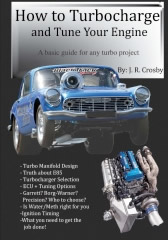| What's Hot! | Products/ Tools | EFI Tuning | Basic Tuning | Advanced Tuning | Chassis Tuning | Advertise with us |
Oil Viscosity and Weight
Contributed by: enginebasics.com

Oil is one thing that is very important to understand. Oil is to an engine, as blood is to a body. It is what keeps everything in check and alive. Making sure the oil in your vehicle is correct and clean is VERY important in sustaining the life of your motor. Be sure to check out our How to change your oil page to know that your oil is being properly maintained.
Many times people wonder what the differences in oil are. There are two types of oil that exist today.
1. Mineral Oil
- This is oil that is natural oil found in the ground that is refined to become the oil that we put in our engines and make gasoline from.
2. Synthetic
- This is oil that has been manufactured for use in a lab.
Next is to understand the weights and viscosity of oils. How stuff works had this to say on the topic:
“Multi-weight oils (such as 10W-30) are a new invention made possible by adding polymers to oil. The polymers allow the oil to have different weights at different temperatures. The first number indicates the viscosity of the oil at a cold temperature, while the second number indicates the viscosity at operating temperature. The Sci.Electronics.Repair FAQ offers the following very interesting description of how the polymers work:
At cold temperatures, the polymers are coiled up and allow the oil to flow as their low numbers indicate. As the oil warms up, the polymers begin to unwind into long chains that prevent the oil from thinning as much as it normally would. The result is that at 100 degrees C, the oil has thinned only as much as the higher viscosity number indicates. Another way of looking at multi-vis oils is to think of a 20W-50 as a 20 weight oil that will not thin more than a 50 weight would when hot.“
Choosing the correct oil for your particular motor is best left up to the manufacturer if your motor is stock. For those of us that have built the motor hopefully this guide and outline will help you choose what oil type and weight might be good for your build.
***Remember*** to check for other relevant information in the columns and article tables.
ATTENTION READER:
If you enjoyed the information and article you just read be sure to check out our newly released book with even more exciting photo's and information:How to Turbocharge and Tune your Engine

Want to know more about your particular Make and Model vehicle? All of these vehicles are covered in the tech, maintenance and repair articles found above. Enginebasics is the wiki or wikipedia of car part, repair, how to and tuning information. Let us be the class 101 for your automotive learning.
| Ford | General Motors GM | Pontiac | Jaguar | Land Rover | Nissan |
| Toyota | Honda | Lexus | Acura | Lotus | Scion |
| Infinity | BMW | Mercedes | Mitsubishi | Ferrari | Maserati |
| Lamborghini | Volks Wagen VW | Saab | Audi | Hyundai | Kia |
| Subaru | Mazda | Chevy | Volvo | Caddilac | Dodge |
| Chrylser | Daewoo | Porsche | Mercury | Freightliner | MG |
Individual Models
| Ford Mustang | Mitsubishi Eclipse | Mitsubishi Evo | Subaru WRX / STI | Dodge Viper | Chevrolet Corvette |
| Nissan Skyline | Honda S2000 | Nissan 350z | Toyota Supra | Chevy Camaro | Lotus Elise Exige |
| Honda Civic | VW Golf | Dodge SRT-4 | Eagle Talon | Acura Integra | BMW M3 |
| Nissan 240sx | Porsche 911 | Acura NSX | Honda Accord | Toyota Camry | Toyota MR2 |
| VW R32 | Dodge Truck | Mazda Rx7 | VW Jetta | Sand Buggy | Nissan Sentra |
For the latest Automotive news and stories visit the websites below |
Our feature Build: An AWD V6 Civic




